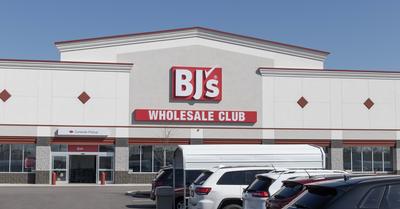Table of Contents
Pros of Retiring to Texas
Texas is a popular state, with over 1,000 people moving there every day. And they all have good reason. The state is culturally varied, rich with history, and full of fun things that make it an attractive spot to call home.
1. No State Income Tax
If this isn’t a perk that deserves to be at the top of the list, I don’t know what is. As a retiree, many of us will still be working part-time jobs, doing consulting work from previous careers, or may have rental income coming in. Having no income tax allows all of those dollars to go farther. It also means that your social security benefits and any other type of retirement income are considered tax-free. Something to definitely consider when thinking about your purchasing power in your later years.
2. Reasonable Cost of Living
Depending on where you settle, Texas may not be as cheap as some places to retire. But, in a state that is as large as some countries, you have lots of options. Some of the bigger cities like Houston and Dallas are going to be more expensive. Still, you’ll find they are more dollar-friendly than other cities comparable in size, such as San Diego or Miami.
Smaller Texas cities, such as Fredericksburg or Brady will have the combination of small-town Texas charm with a cost of living that will stretch your dollars across those wide-open plains. These towns will give you room to breathe, budget-wise. Either way, Texas is going to be more cost-friendly than many favorite retirement spots in other parts of the country.
3. Lots of Educational and Work Opportunities
As I mentioned before, many of us want to continue to work, learn or stay active in our community during our retirement. In fact, by the time we hit those golden years, we usually find ourselves with more time on our hands to pursue the interests we hadn’t been able to earlier in life.
Texas has a great job market. According to Joblist, the Texas economy is doing fine, especially compared to other places in the U.S. Texas also boasts an amazing higher education system, meaning there are opportunities all over the state for those who want to consider going back to school, or just taking a class or two. A state the size of Texas is never going to leave you lacking for things to do.
4. Mild Winter Climate
No retiree wants to spend their latter years shoveling snow and digging out their car. Well, no retiree I know! If a mild winter climate is what you crave, Texas is a good place to land.
Though Texas has a variety of weather patterns, the average temperature during January is 64 °F. Outdoor activities are plentiful and can continue most of the year. Snow and ice are rare in this state, even in areas farther north. If a mild climate is top on your list, Texas is definitely going to check that box.
5. Excellent Health Care System
We all know that Texas goes big – and healthcare is not an exception. With 14 different medical schools, it is a state that values training our future healthcare providers, conducting research, and caring for its citizens.
There are also more than 600 hundred hospitals statewide and many of them have national rankings in areas such as cancer research, diabetes care, and geriatrics. You won’t be hurting for help in this state when your physical needs require care.
Cons of Retiring to Texas
As with anything, there are also some downsides to retiring to the Lone Star State. Though it has a lot to offer, below are some factors that may make this massive state less appealing for some people.
1. High Property and Sales Tax
Having no income tax makes Texas an attractive option for retirement. But, having the 7th highest property tax rate in the United States may prove to be cause for concern. Since most Americans value owning their own home, a property tax rate of 1.8% is steep. This would mean that owning a home in Texas that has a value of $300,000 leaves you paying a tax bill of $5,400 a year. Ouch.
Sales taxes are steep as well. At 6.25%, the Great State of Texas has the 14th highest sales tax in the nation. Now that’s a double ouch.
2. Severe Weather Patterns
Yes, Texas has those mild winters. But it also has some severe weather because of it. A large part of Texas falls within Tornado Alley, and it is not uncommon for the state to be affected by over 100 tornadoes a year (in some areas more than others.)
Because of the warm, humid air during the winter and spring, followed by the intense heat of summer, Texas is set for severe weather like tornadoes, hailstorms, droughts, and wildfires. It’s a big, beautiful state, but if you choose to live here, Mother Nature will keep you on your toes.
3. Higher Crime Rate
As I mentioned before, Texas has a lot of options when thinking about where to live. Urban living, rural lifestyle – this state has it all. But, if living in a large metropolitan area is your thing, know that the per capita crime rate in some of Texas’ biggest cities is higher than their counterparts in other states.
Lubbock and Corpus Christi, for example, have much higher crime rates than many cities nationwide similar in size. Overall, Texas has the 15th worst crime rate in the U.S., which could be a disconcerting fact for those who rank safety high on their list of wants in retirement.
4. Hot Summer Climates
Earlier, I mentioned those nice, mild winters as being a perk to life in Texas. But eventually, summer will arrive, and boy does it bring the heat!
The average daily temperature hovers around 90 °F during the summer months, but it’s not uncommon for the thermometer to cruise past 100 °F during the hottest days, especially near the coast, where the air is also more muggy and thick. Settling farther north will help you avoid some of the hottest, stickiest days, but it’s important to know that all of Texas is known for its summer heatwaves and high humidity, especially compared to other areas of the United States.
5. Urban Sprawl
You move to a city for certain conveniences, right? But what happens when driving the three miles to the grocery store ends up taking you twenty minutes? Or buying one gallon of milk means standing in a line ten deep? Not something you signed up for.
Texas has some of the most vibrant cities in the nation. From excellent food options to first-class entertainment and sporting events, you’ll never be at a loss for something to do. But, with all those attractions come people. And with all those people, come more construction, more crowds, and more traffic.
According to Smart Cities Dive, urban sprawl has never been worse in Texas than it is now. Land that used to be for farming is now being used for new housing developments, shopping malls, and entertainment venues. Though this can be good news for those retirees looking for lots to do, it can also be annoying to spend hours in traffic when life is short and there’s lots of living to be done outside your car or on the other side of the long grocery line.
What Should I Prioritize in My Retirement Years?
Probably one of the most exciting, yet daunting parts of planning for retirement is figuring out what things are going to be important to you, and what things you are fine leaving off your list. Everyone has different wants and needs – whereas I may want a variety of concert venues at my fingertips, you may yearn for wide-open spaces with not a soul in sight.
Here is a list of things you may want to think about when starting your retirement planning:
When?
This may be the first question we ask ourselves when starting to think about the next stage of our lives. When is retirement right for me?
This question isn’t just referring to your financial situation. When we can retire does have a lot to do with our finances, but other factors are often at play as well. Is your job a physical one that means you won’t be able to do it for much longer? Do you have ailing parents that need you sooner than later? Do you worry your mental health will be affected once you don’t have a job to go to every day? Along with your financial picture, these are other questions worth asking yourself when you start thinking about your retirement timeline.
Where?
I covered many of the pros and cons of living in Texas, but do you have other places on your retirement list that you are considering as well? What makes each of those spots attractive? Is it a location near family or friends? Is it a desire to live on the water or in the mountains? Is the idea of not being near excellent health care or an international airport concerning to you? All of these questions need to be explored when narrowing down your list of where you are going to be the healthiest and the happiest in your golden years.
With Whom?
Finally, we can all dream big and get excited about the opportunities retirement life is going to bring us, but if we are partnered, those dreams may have to shift a bit, depending on what our other half desires as well. Chances are, you have had this discussion and both have many of the same wants. But there may be some areas you don’t align one hundred percent. If your partner has health issues, this may mean you can’t have that homestead in the middle of nowhere. Maybe your other half is looking forward to finally raising those chickens they’ve always wanted, but you can’t wait to live in a big city where you can walk to restaurants, breweries, and sporting events. Talking about the things you both need and the ones you really want will help make this transition to your well-deserved retirement more rewarding for both of you.
Recent Articles


















